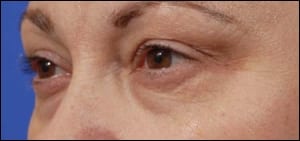At some point, you’ve probably heard about the oil-cleansing method, i.e., using an oil to remove dirt and, well, oil from your face. You’ve also probably been a little nervous about the idea, given that “oil” and “skin” seem like a bad combination. But cleansing oils are growing in popularity and regularly appear on drugstore shelves, even though they seem like a counterintuitive way to wash your face.
Cleansing oils can be more hydrating than traditional face washes because they don’t contain many surfactants (or any, depending on the product), New York City dermatologist Doris Day, M.D., author of the upcoming book Skinfluence, tells SELF. Surfactants are typically used as detergents or foaming agents, and they can be a little harsh on your skin.
“Cleansing oils contain hydrating and soothing ingredients that may actually be more effective and less irritating than some traditional cleansers,” Joshua Zeichner, M.D., a New York City–based board-certified dermatologist and director of cosmetic and clinical research in dermatology at Mount Sinai Medical Center, tells SELF. Contrary to what you may think, Dr. Zeichner says cleansing oils won’t leave your skin greasy or heavy. “Oil absorbs oil, which means that these products can effectively remove dirt from and leave the skin clean,” he says.
But as Dr. Zeichner points out, all oils aren’t created equally: “There’s a big difference between applying a cosmetically formulated cleansing oil versus rubbing canola from your kitchen onto your skin.” And board-certified dermatologist Marie Leger, M.D., Ph.D., assistant professor of dermatology at Weill Cornell Medicine, tells SELF that cleansing oils don’t work for everyone. “They can cause clogged pores, breakouts, and milia, those little hard white [bumps] that can form on your face,” she says.
That’s why it’s so important to pick the right cleanser, Dr. Day says.




